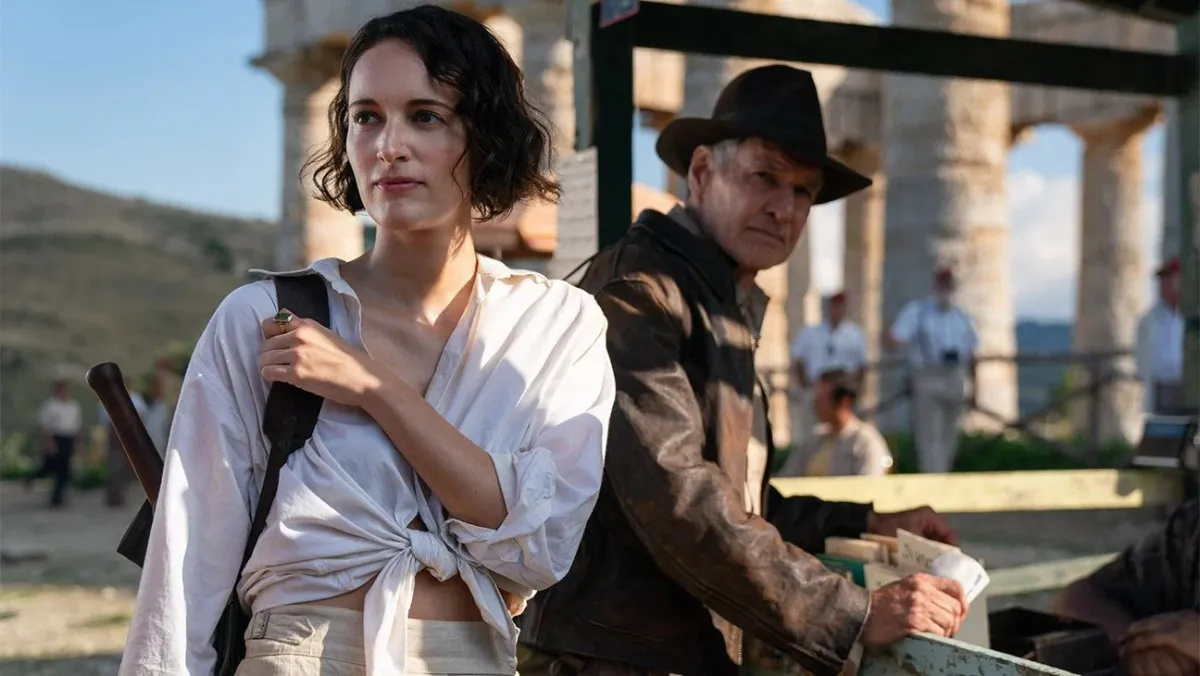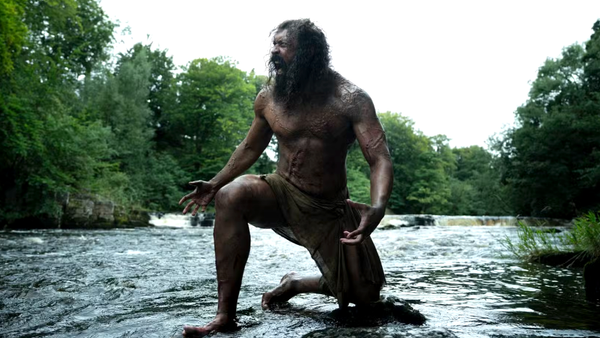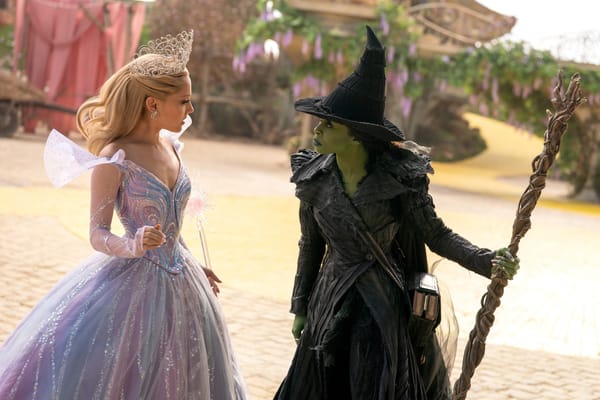They Shouldn't Have Brought Indiana Jones Back Again
Thoughts on a fifth 'Indiana Jones' film.

This post will contain massive spoilers for Indiana Jones and the Dial of Destiny, including a detailed description of the ending.
I started my first podcast a little bit over 15 years ago, when iPods still used clickwheels and you had to plug them into your computer to “sync” your podcasts via the iTunes app. When the Slashfilmcast (now The Filmcast) was born, the first movie we ever reviewed was Indiana Jones and the Kingdom of the Crystal Skull.
I still remember my crushing disappointment after watching that film. The Indiana Jones series had been such a key part of my childhood so I was hoping for a final entry in the franchise that would do honor to its protagonist. Unfortunately, very little about Crystal Skull worked for me. The excessive use of rough CG led to some really painful set piece moments. Ray Winstone’s character Mac was introduced moments before being revealed as a traitor (before later being revealed as not a traitor and then even later being revealed as an actual traitor for reals this time). Karen Allen’s performance read as a bit too much “I’m just happy to be here” for my tastes. The final reveal with the aliens being interdimensional beings felt overly complicated and unsatisfying. And Mutt Williams did not strike me as a worthy successor to Indy’s mantle.
I revisited Crystal Skull again recently in the run-up to Dial of Destiny’s release and I had quite a bit more grace for it. Despite all the film’s flaws, we’re still getting to watch one of the greatest filmmakers of all time play around with one of the most beloved characters of all time. Many sequences evince the filmmaking flourishes that Spielberg is known for (example: the opening credits, which are a blast). And despite the silly and overly convoluted journey we took to get there, the film ends with Dr. Jones and Marion Ravenwood getting hitched and walking off arm-in-arm, seemingly happy with their new lives. While it doesn’t beat the iconic final shot of The Last Crusade (still arguably where the franchise should’ve ended), it’s a nice bookend to the first film and a decent ending for a character whose adventures had entertained us for almost three decades at that point. Indiana Jones was going to hang up the hat and the whip and settle down.
It was through this lens that I approached Indiana Jones and the Dial of Destiny, the latest entry in the franchise and presumably Harrison Ford’s swan song for the character. What could possibly justify bringing Indiana Jones back again? How would they give Indiana Jones a better ending than he received in Kingdom of the Crystal Skull?
Dial of Destiny finds Indiana Jones at a low point. After a brief flashback to 1944 with an unconvincingly de-aged Harrison Ford, Dial of Destiny picks up in 1969 with Jones on the edge of retirement and irrelevance from his professor job at Hunter College. His son, Mutt, was killed offscreen and Mutt’s death led to the end of Jones’ marriage to Marion. Soon, adventure finds Indy again as he reluctantly teams up with an old acquaintance, Helena Shaw (Phoebe Waller-Bridge), to obtain Archimedes’ Dial, an artifact believed to have time traveling capabilities. Jürgen Voller (Mads Mikkelsen), a Nazi astrophysicist, is also racing to find the Dial, so he can turn back time and help to win World War II for the Germans.
In the film’s climax, Voller has finally obtained both halves of the Dial and is using the it to fly a plane into the past with a wounded Indy in tow so he can watch his future’s end. Helena has snuck on board and her sidekick Teddy (Ethann Isidore) is in a separate plane following them. But when Voller’s plane flies through a sky portal, everyone is shocked to discover that the Dial has actually taken them back to 212 BC to the Siege of Syracuse. It turns out that Archimedes’ Dial was always intended to direct people back to this point in time, as Archimedes’ side really needed as much help as he could get (In real life, the Syracusans lost and Archimedes was slain).
It’s a legitimately big swing for a film like this and there are a bunch of nice moments in the sequence. At one point a harpoon pierces the side of the airplane and rather than being scared of it, Indiana Jones touches it with fascination — a lovely character moment. Eventually, Jones and Helena escape from Voller’s plane and touch down on the ground. Having been shot earlier in the film, Jones asks Helena to leave him behind. Dying in the actual Siege of Syracuse would be a fitting end for Indiana Jones, who has spent his life obsessed with the past. And for a moment, you think the film is going to make good on the promise of this bold idea.
And then it completely blows it.
Helena punches out Jones and we cut to black before we find him waking up back at his New York apartment (presumably Helena and Henry were able to drag Jones onto the second airplane offscreen and GTFO before the Romans wised up to their presence). After a brief reunion with Sallah and a tender moment with Marion Ravenwood, the movie ends. And that’s probably the last time we’ll see Harrison Ford portraying Indiana Jones.
The ending affords Jones zero agency in one of the most consequential decisions of his life. Returning to the present is probably the best thing for Jones mentally and physically but it’s not a choice that Jones himself is allowed to make, or would make if given the chance. Given this, how is it supposed to be a satisfying ending for the character, beyond the knee-jerk nostalgia of seeing Indy and Marion back together again?
On that note, what do we make of the overall arc of Indy from these last two films? In Crystal Skull, Indiana Jones is brought back to fight the Russians with Marion Ravenwood and their son. He regrets his absence in their lives all these years but after going through a life-changing event with them, he realizes he wants to be with them and thus marries Marion. Dial of Destiny rends them apart offscreen, only to bring Jones and Marion back together for a perfunctory reunion in the final minutes. In other words, it brings him right back to where we left things off at the end of the last movie. Perhaps this would all be forgivable or interesting if the film did a better job of building up the character of Helena and positioning her as Indy’s successor. She begins the film as a craven capitalist merely out for money and ends the film genuinely caring about Indy’s well-being. But I found her characterization to be so thin that I didn’t understand when and how that transformation actually happened.
It all left me wondering: What was the point of all this? This movie and this franchise should’ve left Indiana Jones where he belongs: in the past.
Indiana Jones and the Dial of Destiny is out in theaters now.
Thank you for reading! Sharing my work helps me enormously.
Other Stuff David Chen Has Made
- If you want to see me talk about my thoughts on Dial of Destiny with no spoilers, check out my video below.
- I was so pleased to be able to talk with Brooke Obie about Celine Song’s Past Lives. It was my first time diving into full spoilers on this film and I loved this conversation.
- Also on my YouTube, I counted down my 5 favorite movies of 2023 so far.
- On Decoding TV, Dan Gvozden and I did a super-sized podcast episode reviewing The Bear Season 2 in its entirety. You can watch the conversation below.
- Also on Decoding TV, Patrick Klepek joined Dan and me to discuss the first two episodes of Secret Invasion.
- On The Filmcast, we reviewed Elemental this week, a movie we all think deserves better at the box office.
- [PAID ONLY] On my personal Patreon, @joyonapping and I recorded our reactions to watching Mission: Impossible - Dead Reckoning: Part One.



